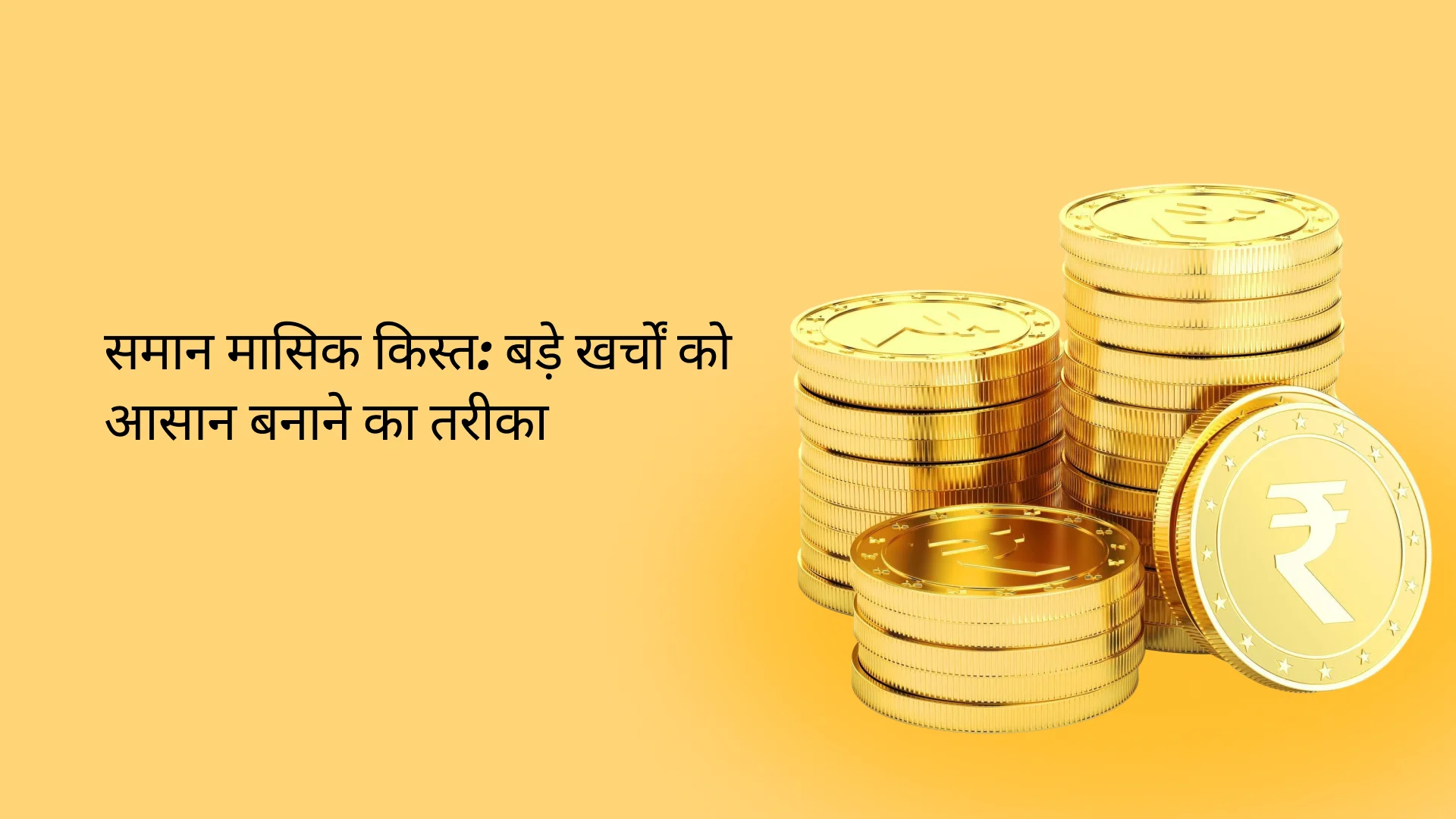Average Credit Score For Personal Loans: Complete Guide

When you apply for a personal loan, lenders require your credit score in order to approve your personal loan application. To assess the creditworthiness, loan amount, and loan terms, lenders check your credit report and repayment capability. Every lender has a different loan approval criterion, that takes into account other factors such as employment status, proof of income, housing status, and so on.
This article explores the average credit score acceptable by most lenders for personal loans.
Table of Contents
ToggleWhat Is An Average Credit Score?
Credit score is a 3-digit number between 300 – 900 and calculated by credit bureaus. The credit score falls in a rating given by the bureaus. In India, credit ratings given by CIBIL, Experian, CRIF Highmark and Equifax are most preferred by lenders. Given below is CIBIL score rating:
CIBIL score range | Rating |
< 599 | Bad |
600 – 649 | Poor |
650 – 699 | Fair |
700 – 749 | Good |
Above 750 | Excellent |
How To Improve An Average Credit Score?
If you have an average credit score, it can be improved by following good credit building habits. Here are some steps to improve your credit history and build a strong credit score:
Timely EMI payments: Anytime an EMI payment is missed; it is directly reported by the credit bureau and remains in your credit history. Thus, timely payments are crucial to build a good credit score.
Check Credit Reports Regularly: It is important to regularly check your credit history to keep track of credit payments and check for any errors or discrepancies.
Maintain Low Credit Utilization Ratio: A good tip is to utilize up to 30% of the credit limit. Utilizing more than 50% of the credit limit raises an alarm with the credit bureau and implies a high dependency on credit.
Healthy Credit Mix: Having a mix of secured loan, unsecured loans, credit ensures a healthy credit mix. Ensure timely payment of credit to build a higher credit score.
Keep Old Credit Accounts Open: A long history of credit payments assures the lender that you pay credit on time. Closing old accounts will impact credit score, thus it is a good idea to keep credit accounts open.
Clear Outstanding Debts: Another way to build a good credit score is to clear any old outstanding debts.
Why Credit Scores Matter for Personal Loans?
Taking a loan can affect your credit score in either a positive or negative way. The effect depends on how one manages their debt. Their impact on personal loan is given below:
Ways Personal Loan Improve Credit Score
Timely EMI Payments: Making EMI payments on time improves your credit history, which in turn increases your credit score.
Minimize Credit Utilization: Taking a personal loan to consolidate credit card debt will help to clear off the debt. This helps to lower credit utilization and improves credit score.
Adds to Credit Mix: Having a mix of secured and unsecured personal loans on your credit report shows the lender that you can manage different types of installments. A good credit mix impacts credit score in a positive way.
Ways Personal Loan Hurts Credit Score?
Missed Payments: If you miss a few loan installments, they show up on your credit report and may lower your credit score.
Hard Enquiry: When a person applies for several personal loans or credit, lenders make a hard inquiry for loan approval. Hard inquiry lowers the credit score and stays on the credit report for up to 2 years and impacts the credit score for a year.
Debt Load: Taking a personal loan adds to your debt if you have an existing loan or credit.
What is the Average Credit Score Required for Personal Loans?
To get approval for a personal loan, the average CIBIL score required ranges from 650 – 750. A high credit score increases the chance of loan approval. Taking CIBIL score into consideration, below is a breakdown of credit rating and what it implies for personal loan:
Excellent Credit (750 and above): Credit score in this range is most likely to get easy loan approval. Lenders may offer personal loans at low interest rate with flexible repayment terms.
Good Credit (749-700): Credit score in this range is likely to get loan approved with favorable terms.
Fair Credit (700-650): It is possible to get a loan approved in this credit range, however, loan terms may not be that favorable. Lenders may offer loans at higher interest rates and short tenure.
Poor Credit (649 – 600): It is difficult to get loan approved in this range. The lender may approve the loan based on income proof, salary slips and so forth. Loan terms will be stricter with high interest rates and rigid repayment plan.
Bad Credit (Below 599): If one has a very low credit score, it is very difficult to get loan approval. It is advisable to build a good credit score before one applies for a personal loan.
Every lender has different eligibility criteria and loan approval terms, so checking with the lender is important.
How Lenders Use Credit Scores to Determine Loan Eligibility
Lenders determine loan eligibility using credit scores. They take into consideration the below mentioned parameters, to assess loan approval:
Creditworthiness: Lenders use credit scores to determine credit history and capacity of the individual to repay the loan. Borrowers with high credit score are considered low-risk, and vice versa.
Interest Rate: Lenders typically offer flexible or lower interest rates to individuals with high credit scores.
Loan Amount: To determine the amount of loan to approve, lenders need to know the credit score. One can avail themselves of a high loan amount if they have a higher credit score.
Conclusion
In India, for most lenders, the average credit scores for a personal loan is typically around 650 – 750. It is important to have a good credit score if one plans on applying for a personal loan and get fast loan approval. Having a high credit score increases loan approval and favorable loan terms. Before applying, ensure you have cleared any outstanding debts and have a good credit history. Making timely EMI payments will help improve your credit score, which in turn increases chances of quick loan approval.
Frequently Asked Questions
What Is A Good Average Credit Score?
As per credit bureaus in India, a good credit score is generally in the range of 700 – 750.
What Is The Average Credit Score In India?
The average credit score in India is in the range of 500 – 650.
How Can Personal Loans Improve Your Credit Score?
One can improve their credit score with a personal loan, by consistently making EMI payments on time. This way, you can demonstrate responsible credit behavior, which helps improve your credit score in the long run.
How Does An Average Credit Score Affect My Ability To Get A Loan?
With an average credit scores, getting a loan is possible, but lenders may not offer you loans on favorable terms. Lenders may approve loans but at a higher interest rate and shorter tenure.
What Are Common Mistakes That Can Lower My Average Credit Score?
Common mistakes that lower credit score: delayed or missed payments, simultaneously applying for multiple credit cards, closing old active credit accounts, high credit utilization ratio
What Is An Average Credit Report?
A typical credit report provides detailed information on credit history including credit accounts, payment history and credit inquiries, if any.
YOU MAY ALSO LIKE

Search by posts
Recent post
-
 Instant ₹10,000 Loan Without Salary Slip – Quick Approval
Instant ₹10,000 Loan Without Salary Slip – Quick Approval
-
 समान मासिक किस्त: आपकी वित्तीय खर्चों को आसान बनाने वाला तरीका
समान मासिक किस्त: आपकी वित्तीय खर्चों को आसान बनाने वाला तरीका
-
 Apply for 50000 Rupees Loan Urgently: Get Disbursed in Few Minutes
Apply for 50000 Rupees Loan Urgently: Get Disbursed in Few Minutes
-
 How to get Instant Loan on Aadhaar Card without Salary Slip
How to get Instant Loan on Aadhaar Card without Salary Slip
-
 How to Apply for a Rs. 25,000 Loan on an Aadhaar Card?
How to Apply for a Rs. 25,000 Loan on an Aadhaar Card?
Categories
- Blog (6)
- Credit History (36)
- Credit Line (7)
- Festive (4)
- Finance (15)
- Mutual Fund (19)
- Personal Loan (276)
- Tax (8)
- Zype (4)













